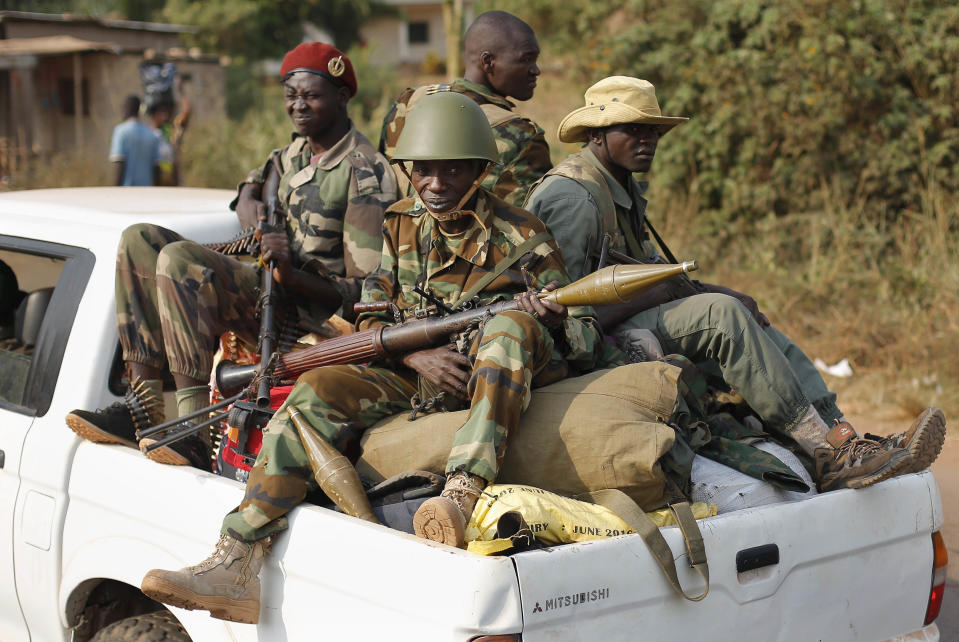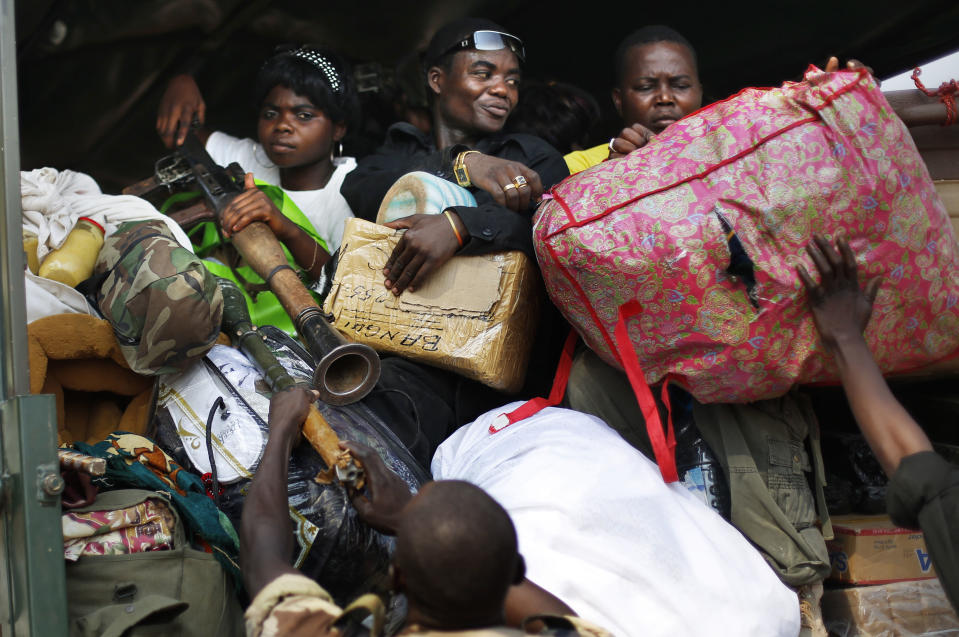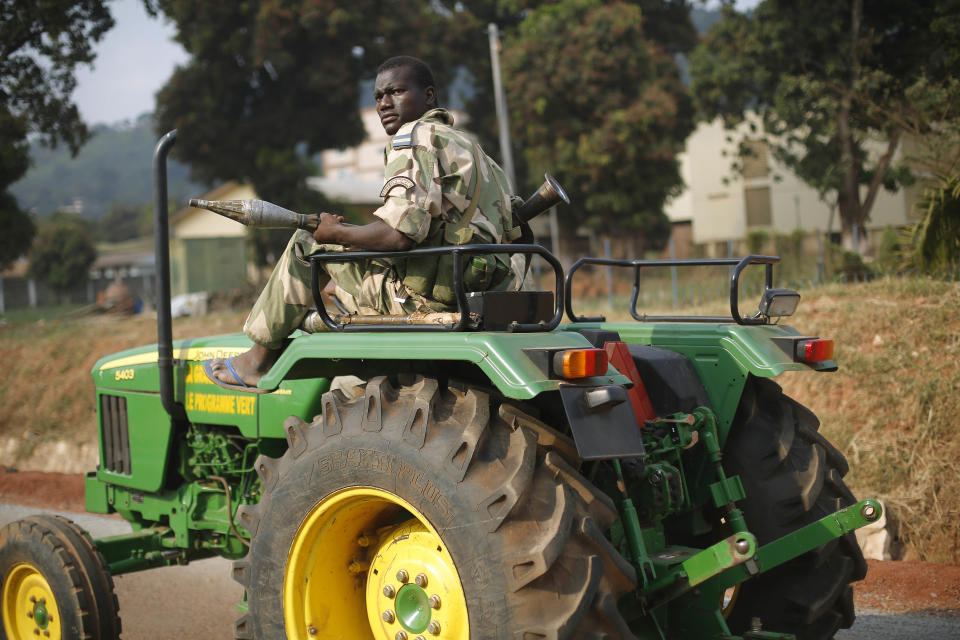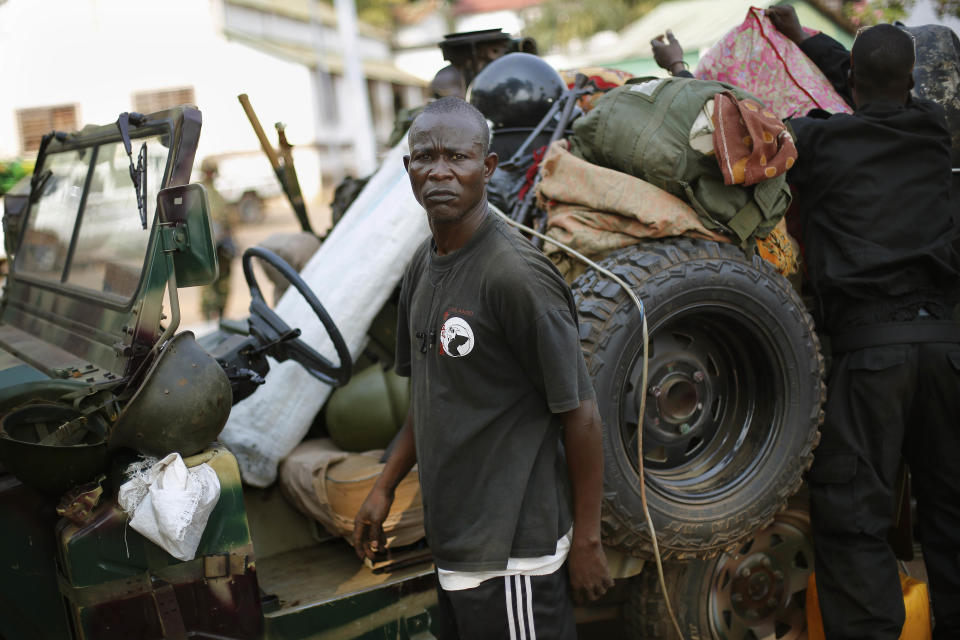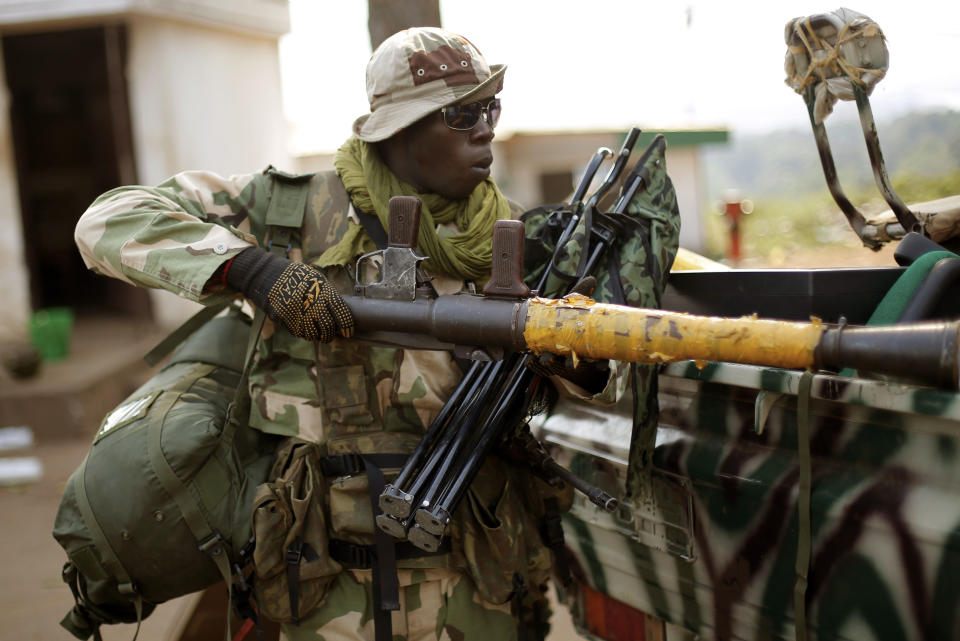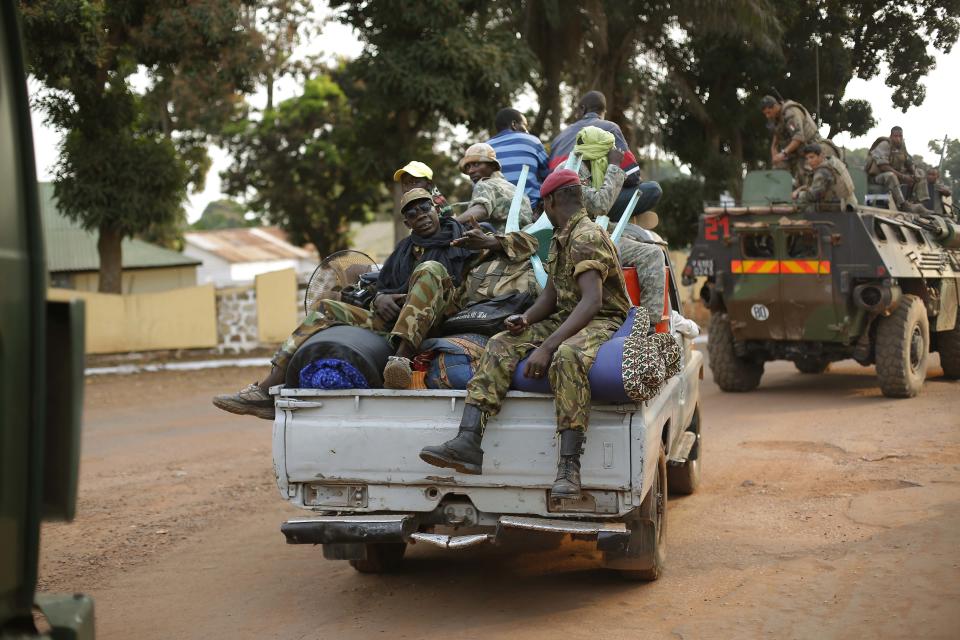C. African Republic rebels leave hillside camp
BANGUI, Central African Republic (AP) — Dozens of Muslim rebels who ousted the president of Central African Republic last year moved out of the main military base in downtown Bangui on Monday, hours after some of their top brass were escorted out of the capital by peacekeepers.
Even as the exodus from the hilltop camp suggested the waning influence of the Seleka fighters after months of atrocities, scores of Muslim civilians also were fleeing the capital, fearing for their lives as sectarian tensions remain high.
The U.N. high commissioner for human rights, Navi Pillay, warned Monday the country "is now at a critical juncture."
"The security and human rights situation has further deteriorated over the past few days," she said. "Muslim civilians are now extremely vulnerable. Many are being pushed out of the country, alongside ex-Seleka, and are now fleeing, mostly toward the Chadian border."
Many Seleka fighters are believed to have originally come from Chad as mercenaries to back rebel leader-turned-president Michel Djotodia and his government.
The civilians now being forced to flee have in many cases lived in Central African Republic for generations.
The clearing out of Camp de Roux — normally the army's main base in the capital — comes more than two weeks after Djotodia surrendered power amid mounting international condemnation of his inability to stop sectarian bloodshed. A new interim civilian government has pledged to halt the violence and attempt to organize elections by February 2015.
Still, it was not immediately clear whether all members of Seleka would follow suit. Djotodia's coalition was always a loose alliance of rebels — some of whom had fought each other before joining forces.
In the town of Mbaiki, some 110 kilometers (70 miles) southwest of Bangui, Seleka fighters are still in control. Col. Al Nour Moussa said they were awaiting instructions from the transitional government led by interim President Catherine Samba-Panza.
"If she really wants to work with us, we are ready to serve. If not, we can go back and liberate Bangui, we are capable of it," the rebel officer told The Associated Press.
Late Monday, state radio announced that new Prime Minister Andre Nzapayeke had named a 20-member cabinet, including five ministers from Djotodia's government. However, strategic posts including defense and finance went to newcomers.
U.S. Secretary of State John Kerry has warned Seleka leaders and others that they could face sanctions if they "further destabilize the situation, or pursue their own selfish ends by abetting or encouraging the violence."
Djotodia's alliance of rebel fighters known as Seleka had overthrown the president of a decade in March 2013 before installing themselves as the country's government. With Djotodia's departure, though, the influence of his fighters is weakening by the day.
On Sunday, a convoy of up to nine cars packed with Seleka leaders was spotted 50 kilometers (30 miles) north of Bangui, according to Peter Bouckaert, emergencies director of Human Rights Watch.
The convoy was guarded by Chadian peacekeepers and led by six armored personnel carriers, Bouckaert said. Chadian peacekeepers have been accused of supporting Seleka throughout the conflict. Gen. Mahamat Bahr, Djotodia's military intelligence chief, was among the officials, Bouckaert said.
Since March, Seleka rebels have killed and tortured civilians, even tying people together and throwing them off bridges to drown. Anger and resentment toward their abuses brought a sectarian dimension to the political conflict, and armed Christian fighters began retaliating not only against Seleka but against Muslim civilians perceived as supporting them.
Those Christian militiamen launched an attempted coup in early December, sparking several days of slaughter that left more than 1,000 people dead. Nearly two months later, some 100,000 people are still seeking refuge at the airport guarded by French forces while almost 1 million people have been forced from their homes nationwide.
___
Larson reported from Dakar, Senegal. Associated Press journalists Andrew Drake and Hippolyte Marboua in Bangui, Central African Republic contributed to this report.
___
Follow Jerome Delay on Twitter at https://twitter.com/jeromedelay and Krista Larson at https://twitter.com/klarsonafrica.
